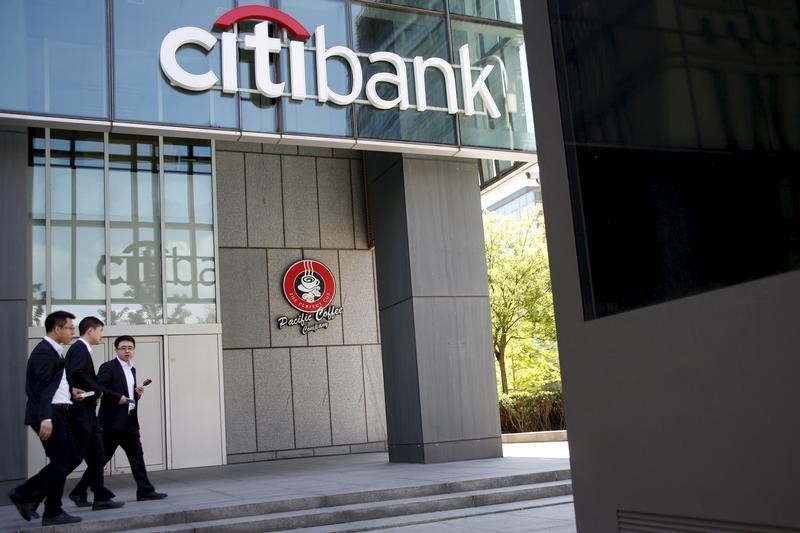Citigroup (NYSE:C)'s Q3 profits for 2023 exceeded expectations, buoyed by a rise in interest payments and a significant 34% surge in investment banking fees, despite the bank setting aside $17.6 billion for potential bad loans due to economic uncertainty and a slowdown in deal-making. The bank's reorganization plan, which is considered the most significant overhaul in nearly two decades, aims to reduce roles by 15%, with 60 committees already eliminated and an expected substantial reduction in headcount.
On Friday, Citigroup revealed that its net income rose 2% to $3.5 billion, while adjusted earnings of $1.52 surpassed London Stock Exchange Group (LON:LSEG) estimates of $1.21. The revenue from Citi's institutional clients group increased by 12%, offsetting a 3% drop in equities trading revenue. The bank's trading unit and treasury and securities services division also contributed to a total revenue growth of 9% to $20.1 billion.
According to InvestingPro data, Citigroup's market cap stands at 81.69B USD, with a P/E ratio of 6.69, indicating that it is trading at a low earnings multiple. This is supported by the InvestingPro tip that suggests that Citigroup is indeed trading at a low earnings multiple. Despite a declining trend in earnings per share, the bank has maintained dividend payments for 13 consecutive years, providing a dividend yield of 5.1%.
CEO Jane Fraser announced sweeping changes, including disbanding the institutional clients group, aiming for a simpler, faster firm that better serves its clients. Fraser stated there was "no room for bystanders" in this new strategy.
The institutional clients group division reported a 12% year-on-year net income increase on Friday, driven by a 14% rise in fixed-income revenues to $3.6 billion. This growth was attributed to strong performances in rates and currencies. Despite an overall 10% rise in market revenue, equity revenues dipped by 3% due to a decline in equity derivatives, partially offset by growth in cash and prime sectors.
The treasury and trade solutions sector posted its best quarter in a decade, while services grew by 12%. Investment banking surged by 34% to $844 million year-on-year due to early deal closures, increased debt underwriting activity, and the absence of certain realized and unrealized gains or losses. This surge contributed to an overall banking increase of 17%.
Significant personnel changes occurred within Citigroup. Paco Ybarra announced his departure, and David Lackenby, Mark Brodie, and Tracey Brown left the cash equities trading business in London. Jamie Mortimore is set to lead the new global rates algo trading team while Sam Hewson was appointed global head of FX sales.
The personal banking and wealth management division's revenue jumped 10% to $6.8 billion, benefiting from the Federal Reserve's anti-inflation campaign. However, deposits fell 3% to $1.3 trillion as customers moved to high-yield assets. Expenses increased 6% to $13.5 billion due to rising costs, investments in control systems, and severance payments for laid-off employees during international business sales.
Citigroup's Q3 results reflect a broader trend in the banking industry with rivals Wells Fargo and JPMorgan Chase (NYSE:JPM) also reporting higher Q3 profits. For more insights and tips like these, check out InvestingPro, which offers a wealth of knowledge, including additional tips and real-time metrics.
This article was generated with the support of AI and reviewed by an editor. For more information see our T&C.
